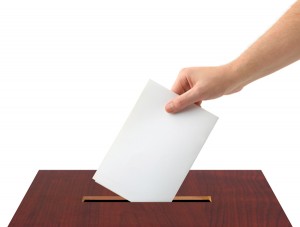 By Steve Brawner, © 2018 by Steve Brawner Communications, Inc.
By Steve Brawner, © 2018 by Steve Brawner Communications, Inc.
One of the issues on which you’ll be voting this election will be the act of voting itself.
Issue 2, referred by the Arkansas Legislature in 2017, would enshrine in the Constitution a requirement for voters to show a photo ID at the ballot box.
Yes, you already did that during the May primary elections. Legislators that year also passed a law that does the same thing and has already gone into effect.
Why both a law and a constitutional amendment? A previous photo ID law unanimously was declared unconstitutional in 2014 by the Arkansas Supreme Court. The majority opinion said it illegally added a new qualification to voters. Another three justices said the Legislature didn’t pass the law by the required two-thirds majority. Justice Courtney Goodson wrote that second, concurring opinion. Opponents have used that against her in her re-election campaign this year.
In response, the Legislature covered its bases.
First, it passed the law with more than a two-thirds vote. Last week, the Supreme Court, a majority of which has changed since 2014, ruled it constitutional. That means you must show a photo ID to vote in an election where photo ID will be an issue. You also can vote provisionally, which means you can cast a ballot and sign a sworn statement confirming your identity. County election commissions will review those ballots. Goodson voted to uphold the law this time.
Meanwhile, in case the Supreme Court ruled it unconstitutional, lawmakers referred to voters the amendment – one of two legislative referrals. If voters add photo IDs to the Constitution, then it can’t be declared unconstitutional.
It will pass. In a September poll by Talk Business & Politics and Hendrix College, 71 percent of respondents said they would vote for Issue 2, while only 21 percent were opposed and only 8 percent didn’t know. Most voters seem to accept supporters’ argument, which is that we present photo IDs regularly in our daily lives, and this is a reasonable step to protect the integrity of the ballot. As with the law, the state would be required to provide free photo IDs to voters who don’t have them. As with the law, voters could still vote provisionally.
Opponents say this is a solution in search of a problem. They say in-person voter impersonation is rare, and that requiring a photo ID presents a hardship for some voters who don’t have one.
You think party politics has nothing to do with this? Republican officeholders usually favor photo ID laws, while Democrats usually oppose them. It’s no coincidence that the voters most likely to be affected will be poor, old, disabled, and/or a minority. In other words, they are more likely to vote for Democrats and not for Republicans.
I’m not saying photo ID supporters and opponents aren’t sincere. Most supporters are genuinely concerned about election security, and most opponents are genuinely fearful some voters will be disenfranchised. I’m just saying people come to their conclusions based on many factors.
There’s one other consideration for voters: Should we alter the Constitution now that photo ID is already the law? Constitutions should be about big, broad themes defining who we are and what we value. They should be amended only when necessary. Photo IDs are more of a detail. On the other hand, if the Supreme Court changed its mind once on this issue, it can change it again.
Finally, there’s this. Either way, this is much ado about little. Very few people pretend to be someone else at the ballot box. That’s quite illegal, and there are more efficient ways to steal elections. On the other hand, both the law and the amendment make it relatively easy for most people to get a free ID. This is not a wholesale deprivation of the right to vote.
Meanwhile, there are plenty of election issues over which much ado is warranted, including the influence of secret “dark” money, partisan drawing of district lines, and continuing low voter turnout. Arkansas’ voting machines are never connected to the internet, but there are ways outsiders can mess with the election process. All of these are far bigger issues, but they aren’t on the ballot.
We should be thankful we can vote at all, of course, so let’s not take this precious right for granted. The election is Nov. 6. Early voting starts Monday.
Don’t forget your ID.